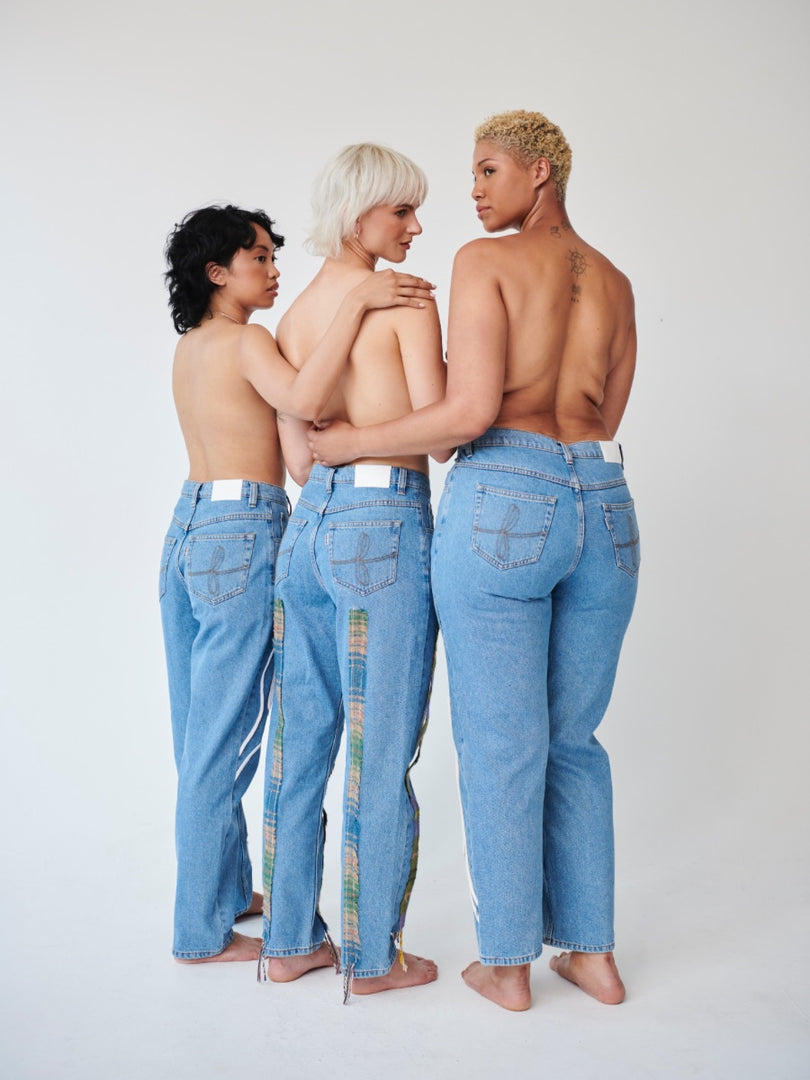It is hard to believe that in the twenty-first century we are being told that our desire for fast fashion is creating opportunities for human exploitation and contributing to the 40 million people living in modern slavery. For too long businesses have built supply chains that drive financial profits at the expense of people and the environment.

Anti Slavery Day takes place on 17th October each year, and we have written this article to educate, equip and encourage those who care about eradicating Human Trafficking to make a difference this week.
Each year we join the A21 Campaign on their Walk For Freedom. (Saturday 19th October 2019 at Westminster, London for A21's Walk For Freedom. Click here for times, locations and to register).
2019 Walk For Freedom from A21 on Vimeo.
Slavery did not stop with its abolition in the 19th century. Instead, it has changed its face and continues to target people globally. Modern slavery affects people of all ages, genders, and races, most commonly affecting vulnerable people and communities who lack education and suffer from poverty. There are 40 million people still living in modern-day slavery around the world and there are more slaves in the world today than ever in history.
Walk For Freedom is a global fundraising and awareness event. Rallying thousands of abolitionists, taking millions of steps, showing up in hundreds of cities all over the world, Walk For Freedom is an outward expression of our inward desire to see slavery completely abolished.
A21's UK office works in three main areas to help tackle the issue of human trafficking across the UK. They prevent trafficking through education and training programmes, protect victims through safe projects and host fundraisers to help the work of A21 globally.
A21’s strategy is to reach the vulnerable and disrupt the demand, rescue victims and seek justice against their captors, and restore survivors by equipping them in order to live independently. If you want to find out more about how you can get involved and help, follow this link.
ABOLISH SLAVERY WITH EACH STEP
@a21 @a21uk and #WalkForFreedom

Image credits: A21 Campaign
Slavery impacts us all, and unfortunately, it’s in the clothing we wear – people in the industry are used and bought as commodities for slave labour or tricked into slavery. In southern India, over 200,000 girls have been trafficked to work in clothing production. In addition to these countries, the US Department of Labour has identified 14 other countries where forced labour is allowed in clothing and jewellery supply chains.
Fashion is the 2nd largest industry that contains slavery within its supply chains. It is a huge contributor to the modern-day slavery issue. It's up to us to tell brands that we won't accept this, that we care about this issue and that we stand together in order to abolish the practice of modern-day slavery.
Today, out of the 40 million people who are victims of modern slavery worldwide around 16 million are in private sectors such as agriculture, production, and fashion. 58% of these people work in countries such as China, India, Pakistan, Bangladesh, and Uzbekistan - countries known for their cotton production and garment factories.
People are being subjected to toxic chemicals, hot irons, and are locked inside factories – abused, tortured and worked from dawn until dusk. Slavery is persistent because traffickers think they can get away with it. Law enforcement is not globally unified on the subject of modern slavery and therefore it can be hard to seek out and prosecute slave owners.
Law enforcement agents and local communities must become aware of how to identify and disrupt these situations if they arise in order to successfully tackle the issue. Working together with local law enforcement and international charities forms a part of the global solution. We work with both International Justice Mission and A21 with the hope that we will be able to completely eradicate trafficking worldwide within our lifetime.
International Justice Mission works and trains local authorities to deal with the crisis so they can stop trafficking at its source. So far they have rescued 50,000 Victims.
Check out our key partners on our website for more information.
Human trafficking is slavery.
It’s the illegal trade of human beings. It’s the recruitment, control, and use of people for their bodies and for their labor. Through force, fraud, and coercion, people everywhere are being bought and sold against their will–right now in the 21st century.
But phrases like ‘slavery’ and ‘human trafficking’ can still feel ambiguous. This is the reality: slavery is violence. It’s physical, verbal, and sexual abuse. It’s forced prostitution. It’s barbaric working conditions.
Slavery is more stoppable than ever, and that’s why we’re here, rallying around the world and doing the work together. - The A21 Campaign
The road to ethical fashion is made of transparency and traceability in every part of the supply chain. The fashion industry must educate itself in order to tackle slavery, and transparent production is essential in educating consumers about ethical choices.

We are active citizens - we can actively choose to create solutions to the problems that face the contemporary world. When we think that the issue is to big for us to solve we often pass the responsibility on to others. We stop doing the little things because we cannot see immediate outcomes.
But if we choose not to rise up together, where will deliverance come from? We have a responsibility as free citizens living under a democracy to use our voice and resources to free the oppressed. True compassion demands action.
Human trafficking is destroying lives, but we believe that freedom will have the final word.

Image credits: A21 Campaign
As consumers, we have the power to choose to buy ethically, to commit ourselves to support brands and change fashion for the better. Educating ourselves about ethical alternatives, thinking about what we wear and learning about the journey behind responsible fashion is the right path to follow.
You might think we are just a fashion brand that produces clothes, but Fanfare is about so much more than that. We use our means, our platform and our knowledge to make a difference in our area. With the massive influence that fashion has on society we have the power to enact positive change on a large scale. Fanfare was created in order to demonstrate that you can produce clothing in an ethical way whilst highlighting and finding solutions to the biggest issues within the fashion industry.
We care about people.
We speak up for those who cannot speak for themselves.
We stand alongside those who justice does not reach.
We can make a real fashion statement with what we wear, making fashion safer for everyone, one garment at a time. We can express our involvement by buying ethical, sustainable and conscious clothing. Sica Schmitz, the creator of the Fair-Trade Fashion Show in Los Angeles said: “We are all related to fashion, which means that we have all the power to solve it.”

Image credits: A21 Campaign
The Consuming Modern Slavery report says that consumers recognise that responsibilities are equally distributed between governments, companies, and consumers themselves.
Better laws, international cooperation, corporate transparency, social responsibility, clear information and awareness of our consumption methods are the starting points to eradicate modern slavery

Image credits: A21 Campaign
We are also partner with Freeset USA, a Fair Trade non-profit in business for freedom from oppression, poverty, & ignorance. Their mission is to bring freedom to communities in West Bengal, India and beyond through employment and education.
Freeset India also exists to offer employment to people who've been marginalized by society. They have strategically placed their facilities in communities written off by society because they believe these communities deserve to live a life of freedom.
Multiple petitions are already in place and you can help by adding another voice to these campaigns. In the aftermath of Fashion Revolution Week, a petition by Traidcraft Exchange asks the UK government to create a modern slavery database on the UK fashion industry. The petition, “Who made my clothes?”, aims to push the fashion industry to clean up its act. Although progress has been made, not every company is moving fast enough. For another slavery petition click here.
Sign the petition to add your voice. Educate yourself, choose well and buy consciously.



